The world of NBA team ownership is a fascinating landscape, where billionaires and sports legends alike shape the future of their franchises and the league itself. Behind every slam dunk and game-winning three-pointer, there’s an owner whose decisions and vision have helped create those unforgettable moments. But who really owns the NBA in 2023? This blog post will take you on a journey through the organizational structure of the league, the power and influence of team owners, the process of becoming an owner, and the evolving relationship between owners and players, all while answering the question: who owns the NBA?
In this exploration, you’ll discover the roles of the Board of Governors and the Commissioner, learn about high-profile and controversial owners, and delve into the recent ownership changes that have impacted teams like the Minnesota Timberwolves and Utah Jazz. So, lace up your sneakers and get ready for an insider’s look at the thrilling world of NBA team ownership, and uncover the answer to “who owns the NBA?”
Key Takeaways
The NBA is governed by a Board of Governors composed of the Commissioner and 30 team owners.
High-profile owners have significant power & influence, while controversial ones can cause debate.
Ownership requires financial resources & dedication, with changes impacting teams’ futures. Relationships between players and owners are strengthened through player empowerment and social causes.
The Structure of the NBA
The National Basketball Association (NBA) is a complex entity, and its structure plays a pivotal role in ensuring the success of its sports teams. The NBA Board, composed of 30 team owners, sits at the heart of the NBA’s organizational structure, making pivotal decisions for the basketball league. These owners collectively hold the reins of power, shaping the rules and regulations that govern the league and its franchises.
Working alongside the Board of Governors is the NBA Commissioner, who oversees the league on behalf of the team owners. The current Commissioner, Adam Silver, has been instrumental in managing the league and ensuring its continued growth and development. Every team in the NBA, from the New York Knicks to the Golden State Warriors, is influenced by the choices made by the Commissioner and the Board of Governors.
Board of Governors
The NBA’s Board of Governors, comprised of team owners, wields significant authority to decide the league’s rules, regulations, and overall trajectory. This governing body represents the interests of franchise owners and ensures that their voices are heard in the decision-making process. The Board of Governors is composed of Commissioner Adam Silver and the 30 team owners and their respective representatives.
The Board of Governors’ influence permeates the entire league, with each team owner contributing significantly to the shaping of the NBA’s landscape. From setting salary caps to determining playoff formats, the Board of Governors helps guide the NBA’s course to ensure its long-term financial success and competitive balance.
The Commissioner
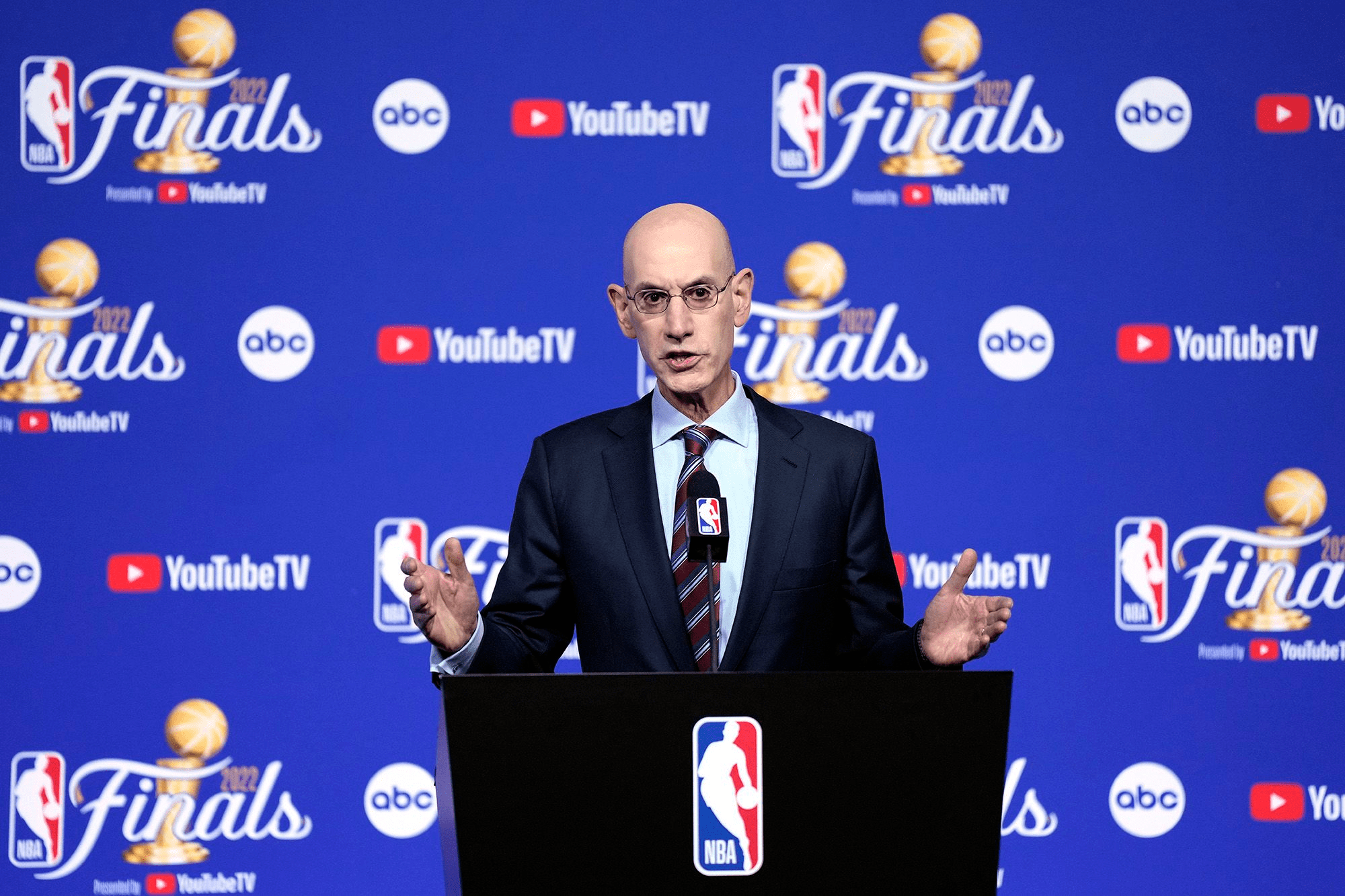
Representing the team owners, the NBA Commissioner plays a central role in managing the league and enforcing its rules. The current Commissioner, Adam Silver, has played a key role in overseeing the operations of successful NBA teams and guiding the league’s growth and development. Selected by the Board of Governors, the Commissioner ensures the smooth functioning of all teams, including high-profile franchises like the Los Angeles Lakers.
The Commissioner, bearing significant responsibility and influence, collaborates intimately with team owners to tackle pressing issues and steer through the intricate world of professional basketball. From negotiating collective bargaining agreements to handling disciplinary matters, the Commissioner plays a crucial role in maintaining the integrity and success of the entire league.
Related Article: Who Owns The UFC In 2023?
The Power and Influence of NBA Team Owners
NBA team owners wield considerable power and influence over their teams, shaping their franchises’ destinies through their decisions and actions. These high-stakes players in the world of professional basketball come from various backgrounds, with some being high-profile figures and others facing controversy due to their management styles or off-court behavior. Regardless of their public image, team owners are integral to the success of their respective teams and the league as a whole.
The journey to NBA team ownership is often a complex and challenging process, requiring substantial financial resources and a commitment to building a successful franchise. Exploring further into the realm of NBA team owners, unique narratives of high-profile and controversial owners will be uncovered, illuminating their influence on their teams and the league.
High-Profile Owners
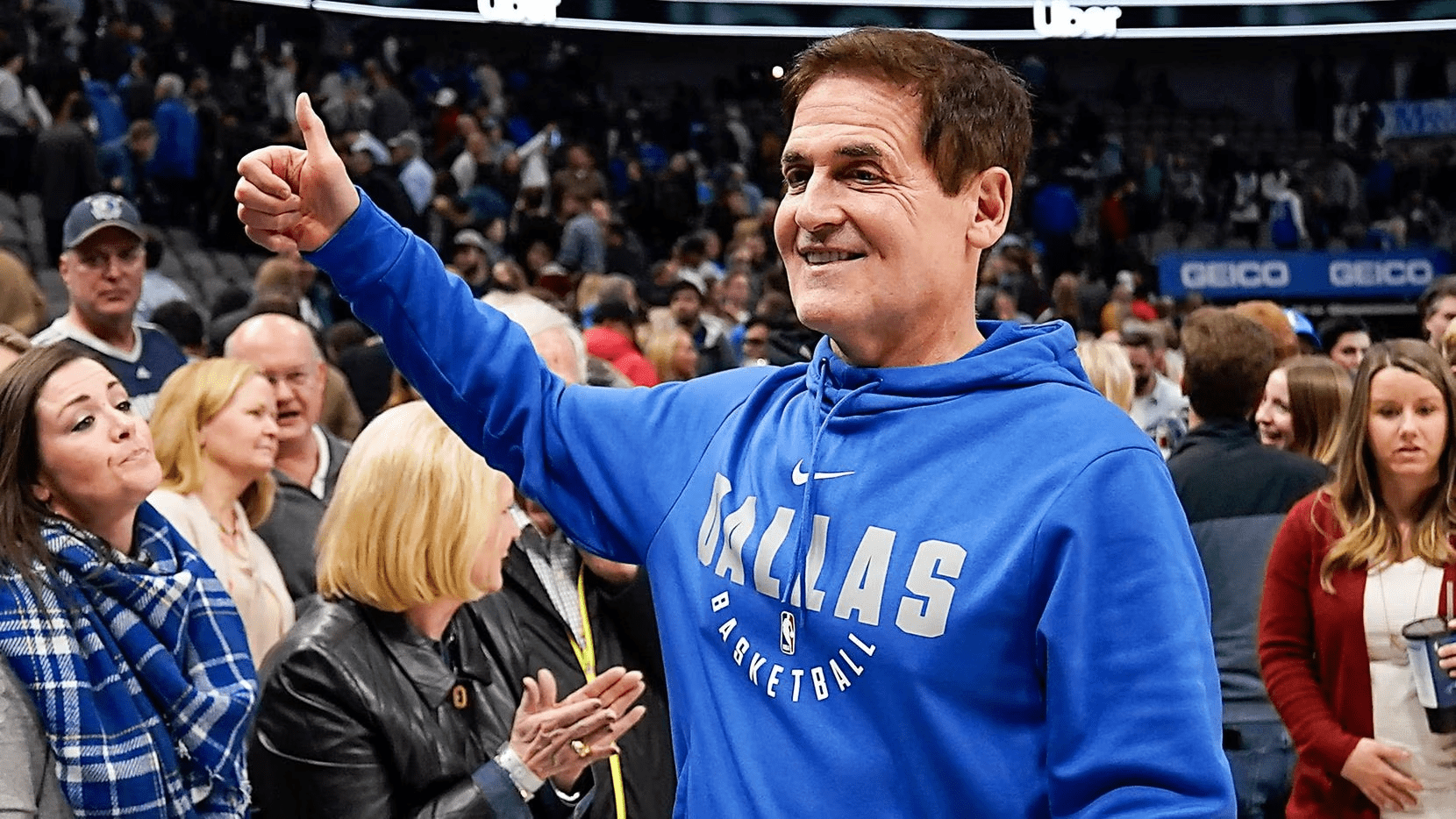
In the world of NBA team ownership, there are a few giants who stand above the rest. High-profile owners such as Michael Jordan, Mark Cuban, and Steve Ballmer have used their wealth and influence to shape their respective teams, often becoming household names in the process. For example, basketball legend Michael Jordan became the majority shareholder of the Charlotte Hornets in 2010, owning 97% of the franchise and investing $175 million in the team. He is currently in the process of selling the majority of his ownership and will maintain a minority ownership stake after the completion of the sale.
Similarly, Mark Cuban, the charismatic entrepreneur, and owner of the Dallas Mavericks, has been a driving force behind the team’s success since purchasing them in 2000 for $285 million. Steve Ballmer made headlines when he acquired the Los Angeles Clippers in 2014 for a staggering $2 billion, making him one of the wealthiest and most influential owners in the league.
These eminent owners, who in a sense “own the NBA”, have imprinted their legacy on the league, exemplifying the power and sway that team owners can exert.
Controversial Owners
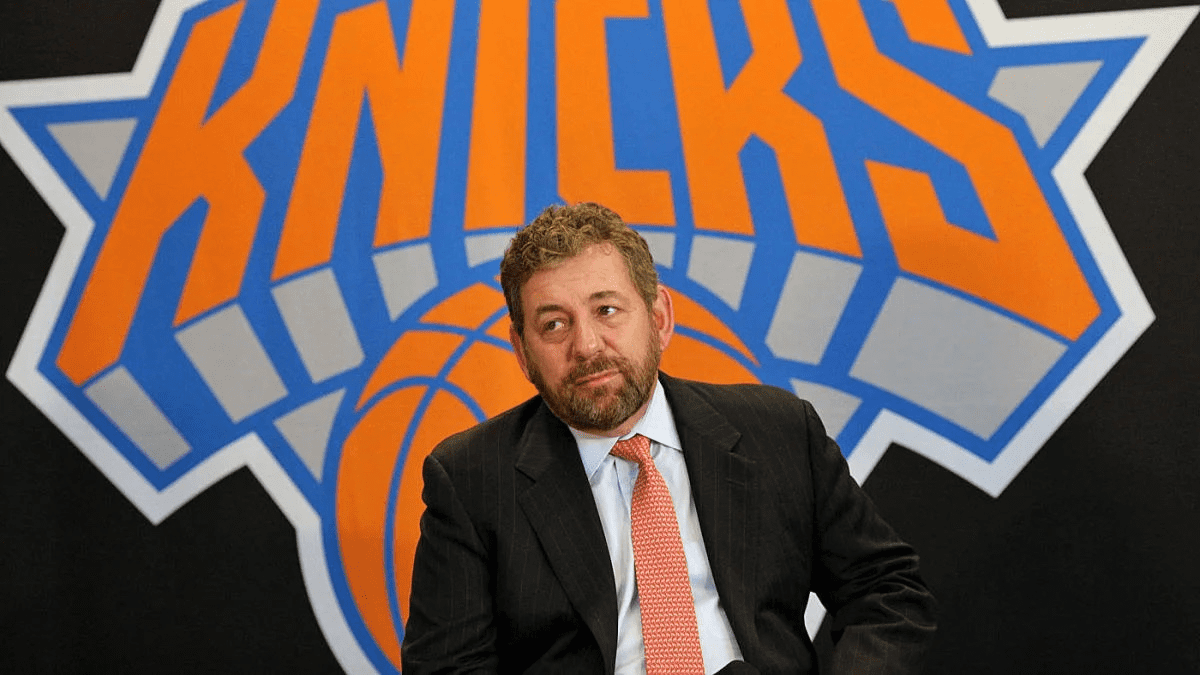
Not all NBA team owners are universally celebrated. Some have faced criticism for their actions, decisions, or off-court behavior, impacting their teams and the league as a whole. Controversial owners can draw attention to their franchises for all the wrong reasons, often sparking debates about their management styles and the role of ownership in professional sports.
One such example is James Dolan, owner of the New York Knicks, who has been widely criticized for his questionable decisions and lack of leadership skills. Another controversial figure is Jerry Reinsdorf, the owner of the Chicago Bulls for over 30 years, who has had a complex relationship with superstar Michael Jordan and faced scrutiny over his management of the team.
Although these contentious owners may not always enjoy popularity, they undeniably play a significant role in influencing their teams and the entire NBA.
The Journey to NBA Team Ownership
Becoming an NBA team owner is no small feat. Prospective owners must have substantial financial resources and undergo a rigorous approval process to join the exclusive ranks of NBA team ownership. This process ensures that only individuals with the means and dedication to build and maintain a successful franchise can become team owners.
Exploring the path to NBA team ownership, the financial requirements and approval process that potential owners need to work through will be discussed. From demonstrating the necessary financial means to presenting a comprehensive plan for the team’s success, the path to owning an NBA team is both challenging and rewarding.
Financial Requirements
Prospective NBA team owners must be prepared to invest significant financial resources into their franchises. With the average cost of an NBA team estimated at approximately $2.86 billion, owning a professional basketball team is no small investment. In addition to the initial purchase price, team owners must also have the means to support their team’s operations, including player salaries, staff compensation, and facility costs.
It’s important to note that team ownership also comes with potential financial risks. Teams can be exposed to fluctuations in the market, alterations in the league’s rules and regulations, and other factors that can impact the value of the franchise.
In spite of these risks, for those with the financial capability and commitment, owning an NBA team can prove to be an exceptionally rewarding and profitable venture.
Approval Process
In addition to having the necessary financial resources, prospective NBA team owners must also go through a rigorous approval process to join the league. This process involves a thorough vetting of the potential owner’s background, financial resources, and business plan, ensuring that only qualified individuals can become team owners.
The approval process for NBA team ownership includes the following steps:
Evaluation of the prospective owner’s net worth, liabilities, character, acquaintances, and past.
Garnering the approval of existing team owners.
Garnering the approval of the NBA commissioner, Adam Silver.
This process can take several months to complete.
This exhaustive process guarantees that only the most devoted and competent individuals attain NBA team ownership, ensuring the league’s integrity and competitive equilibrium.
Notable NBA Team Ownership Changes
In recent years, there have been several notable ownership changes within the NBA, with new owners bringing fresh perspectives and resources to their teams. These changes can have a significant impact on a team’s success and direction, as new owners often bring different management styles and goals to their franchises.
This section will examine the recent ownership transitions of the Minnesota Timberwolves and the Utah Jazz, along with the influence these new owners have exerted on their respective teams.
These transitions in team ownership not only offer an intriguing insight into the realm of NBA team ownership, but also underscore the constantly changing landscape of professional basketball. As the league continues to grow and evolve, so too do its team owners, who play a crucial role in shaping the future of the NBA.
Minnesota Timberwolves
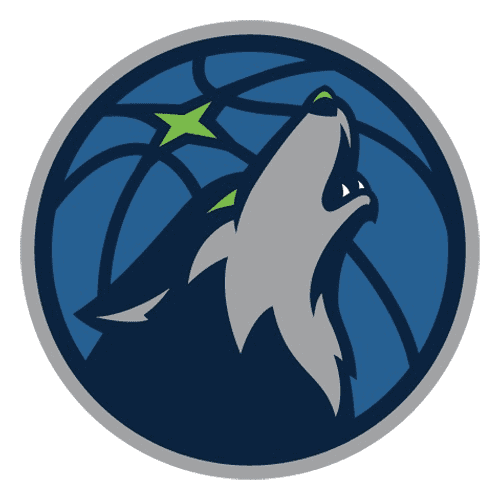
The Minnesota Timberwolves experienced a significant ownership change recently when tech entrepreneur Marc Lore and former MLB star Alex Rodriguez took over the struggling franchise. This new ownership duo will bring fresh perspectives and resources to the Timberwolves, aiming to revitalize the team and elevate its performance on the court.
Under the guidance of Lore and Rodriguez, the Timberwolves have started to show signs of progress, with young star Karl-Anthony Towns leading the way and strategic changes beginning to pay off.
As the Timberwolves’ future continues to be molded by the new owners, fans can anticipate a new era of Minnesota basketball characterized by innovation, ambition, and a reinvigorated dedication to success.
Utah Jazz
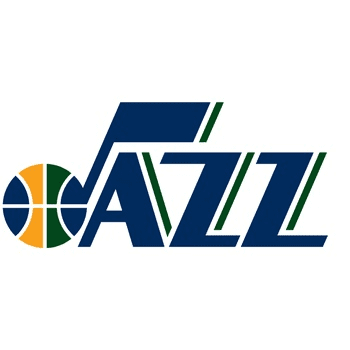
In another notable ownership change, the Utah Jazz were purchased by Qualtrics founder Ryan Smith, who has expressed a commitment to building a championship-contending team. Smith’s acquisition of the Jazz for approximately $1.6 billion signaled a new direction for the franchise, with the tech entrepreneur bringing both resources and a fresh perspective to the team.
Under Smith’s ownership, the Jazz have shown potential for growth and success, with many believing that they have the makings of NBA champions given more time and rebuilding.
As the Jazz forge ahead under new leadership, a promising future awaits this gifted sports team and their loyal fan base.
The Relationship Between NBA Owners and Players
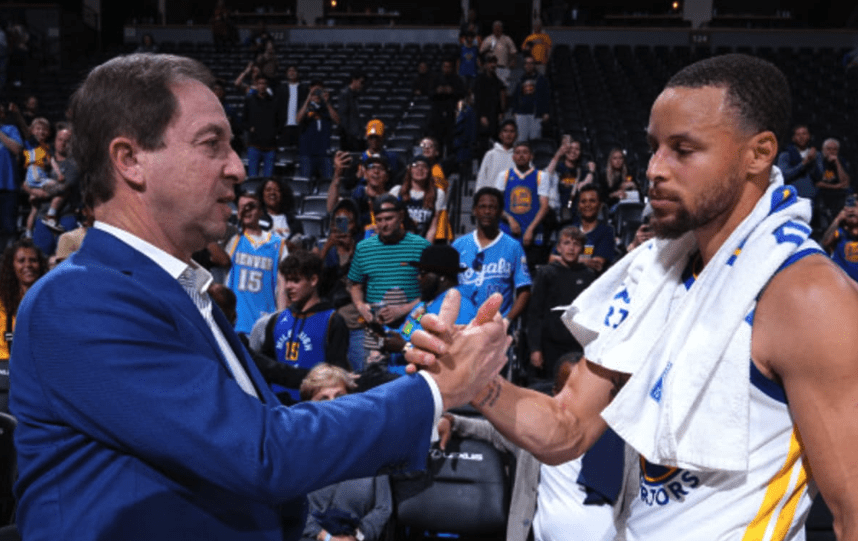
The relationship between NBA team owners and players is a complex and ever-evolving dynamic, with both parties playing a crucial role in the success of their franchises. Over time, players have gained more power and influence within the league, while team owners have become increasingly supportive of social causes, often aligning with their players’ values and beliefs.
Digging deeper into the NBA owners and players’ relationship, the increase in player empowerment and the expanding trend of team owners backing social causes will be investigated. By examining this intricate dynamic, we can gain a better understanding of the factors that contribute to the success of NBA teams and the continued growth of the league as a whole.
Player Empowerment
In recent years, player empowerment has become a significant force within the NBA, with players gaining more control over their careers and using their platforms to advocate for change. The National Basketball Players Association (NBPA) has played a key role in this shift, negotiating collective bargaining agreements that grant players more autonomy in selecting their teams and negotiating their contracts.
Players have also used their platforms to champion social justice, racial equality, and other causes, pushing for changes within sports leagues like the NBA and beyond. This increased player empowerment has not only allowed athletes to have a greater say in their careers, but has also sparked meaningful social transformation, both within the league and in society as a whole.
Supporting Social Causes
In addition to the rise of player empowerment, NBA team owners have shown a growing commitment to supporting social causes, including racial justice and LGBTQ+ rights. Many owners have expressed their support for these issues through public statements, donations, and various initiatives aligning with their players’ values and beliefs.
This increased support for social causes has helped to strengthen the relationship between NBA owners and players, fostering a sense of unity and shared purpose within the league. As the NBA progresses and expands, the commitment to social causes from both team owners and players will undeniably play a pivotal role in shaping the league’s future.
Summary
From the boardroom to the basketball court, the world of NBA team ownership is a complex and fascinating landscape that shapes the future of the league and its franchises. Through exploring the league’s organizational structure, the power and influence of team owners, and the evolving relationship between owners and players, we’ve gained a deeper understanding of the inner workings of the NBA and the factors that contribute to its success.
As the NBA continues to grow and thrive, the role of team owners remains central to the league’s ongoing development. Whether it’s through their financial investments, strategic decision-making, or support for social causes, these influential individuals hold the keys to the NBA’s future, guiding their franchises and the league on a path towards continued success and innovation.
Frequently Asked Questions
Who are the owners of NBA?
The NBA is jointly owned by the team owners, with each owner having an equal part of the ownership. Together, they own the league and create its structure.
Is the NBA a private or public company?
The NBA is a privately held company defined as an Association under New York State jurisdiction with decisions made by the Board of Governors and a contractual relationship between members.
Is Jordan still an NBA owner?
Michael Jordan’s majority stake in the Charlotte Hornets has been sold to a group led by financiers Gabe Plotkin and Rick Schnall.
Although he will still maintain a minority ownership stake, Jordan is no longer an NBA majority owner.
What is the role of the NBA Board of Governors?
The NBA Board of Governors is responsible for making decisions regarding rules, regulations and the overall direction of NBA teams.
Who are some high-profile NBA team owners?
Mark Cuban and Steve Ballmer are some of the most high-profile NBA team owners.




